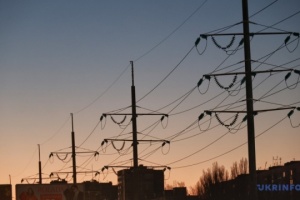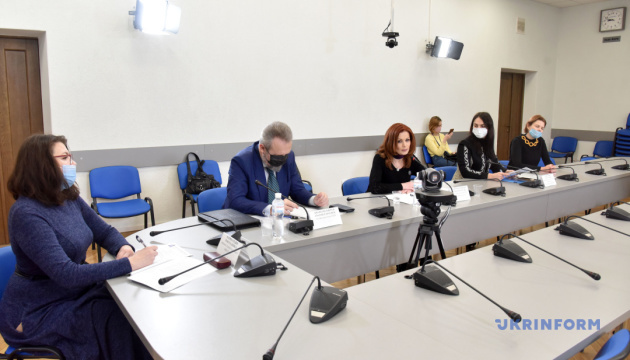
Security Challenges in Eastern Europe in 2021: Play of Big Powers
Fifteen prominent statesmen and women, politicians and diplomats of Ukraine, the USA, the UK, Poland and the Baltic States discussed the issues of implications from the Russian aggression in Ukraine for the whole region of Eastern Europe, the strategies of the USA and the UK for the Eastern European states, and Ukraine in particular, as well as perspectives of the enforced Trans-Atlantic cooperation in Europe during the Administration of the 46th President of the USA J.Biden.
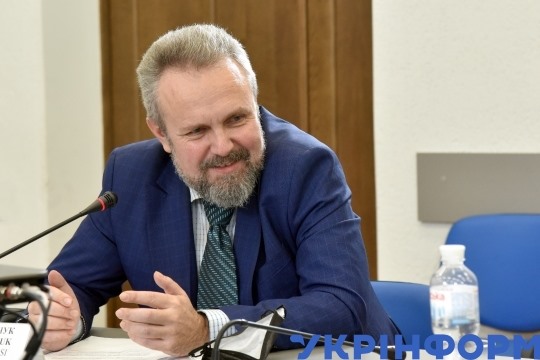
EESI Head of Board Anatolii Pinchuk
The impressive distinguished audience of the speakers was represented by ANATOLII PINCHUK, Head of Board, EESI; H.E. BARTOSZ CICHOCKI, Polish Ambassador to Ukraine; VASYL BODNAR, Deputy Minister for Foreign Affairs of Ukraine; DANIEL FRIED, diplomat, former US Ambassador to Poland, former NSC Senior Director for Presidents Clinton and Bush, Atlantic Council; ŽYGIMANTAS PAVILIONIS, Chairman of the Committee on Foreign Affairs, Seimas of Lithuania; MYKHAILO GONCHAR, Member of Board, EESI, Head of the Centre for Global Studies “Strategy XXI”; HOOSHANG AMIRAHMADI, PhD, Distinguished Service Professor, Rutgers, The State University of New Jersey, Senior Associate, Oxford University, President of the American-Iranian Council ; DAVID GEHRENBECK, Political Counselor, US Embassy in Ukraine; HANNA HOPKO, Chair of the Board of National Interests Advocacy Network ANTS, Head of the Committee on Foreign Affairs of the Ukrainian Parliament (2014-2019), GENERAL WESLEY CLARK, Supreme Allied Commander Europe of NATO (1997-2000), Member of the Strategic Advisory Board of the EESI; IRYNA VERESHCHUK, Deputy-Chair of the Committee on National Security, Defense and Intelligence; Chair of Sub-Committee on National Security (Verkhovna Rada of Ukraine); MARKO MIHKELSON, Deputy Chairman of the Foreign Affairs Committee, Riigikogu (Parliament of Estonia); LtCol (Ret) GLEN GRANT, Baltic Security Foundation (Latvia), Institute of Statecraft (UK); Dr. ALAN MENDOZA, Executive Director, the Henry Jackson Society (UK) and TIMOTHY LESS, Director on Disintegration in Europe, Centre for Geopolitics, University of Cambridge.
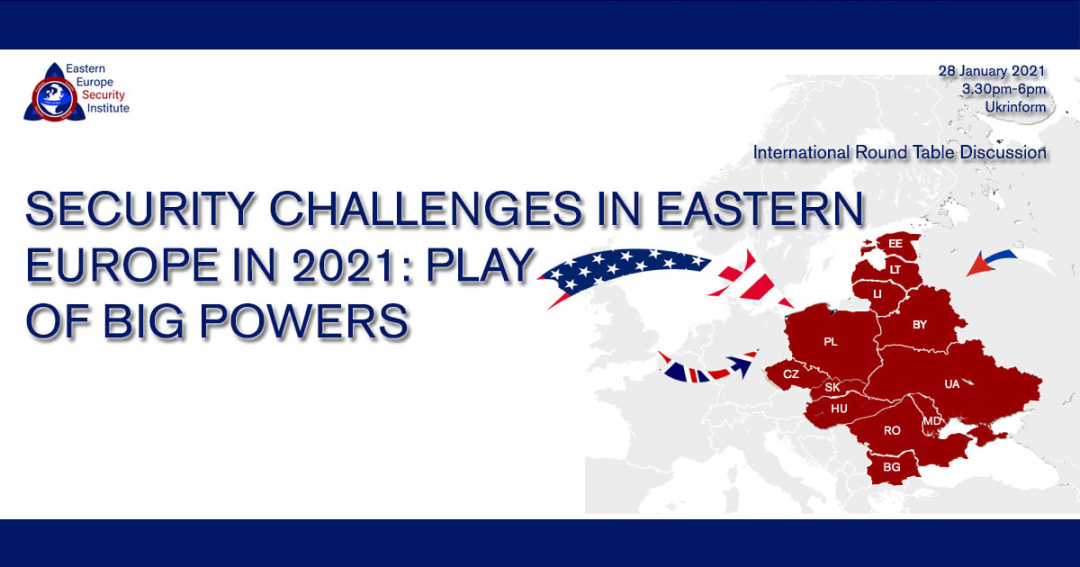
The Round Table became a sort of an invitation for further more focused discussions on issues raised, which the EESI is planning to conduct in 2021 in formats of narrower subject-specific meetings with proper interactive component. There will be a series of public and classified events in 2021 with the aim to stimulate discussion on the given issues and to assist decision-makers of respective countries to come up with effective policy solutions.
As the EESI Head of Board ANATOLII PINCHUK stated, it is the Eastern European countries and, foremost, Ukraine, who stand on the frontline of Western counter stance against the aggressive policy of Russia. Other issues of more global nature will be determined by the efficiency of security and development of the region.
Within the framework of the discussion on 28th of January 2021 the following statements and remarks are worth to be highlighted:
H.E. BARTOSZ CICHOCKI emphasized the necessity of further strengthening of democratic values and the rule of law as an effective tool to stay strong: “Our best defense is in our transparent and stable system of institutions, which is based on rule of law. Only this could make us stronger and capable to withstand threats”.
Within the context of the Russian aggression against Ukraine VASYL BODNAR underlined that only collective actions to withstand the aggression could force Russia to stop. “For us it is obvious that Russia will not stop here [in Ukraine]. We have to be aware of its further actions. Russia is a hostile actor. We could not effectively counteract this hostile activity if we are divided”.
DANIEL FRIED in his intervention also touched upon the issue of Russian aggression against Ukraine and the necessity to strengthen the democratic institutions: “Russia will continue its aggressive policy not only towards Ukraine, but also in the region of Eastern Europe. We have to strengthen our democratic institutions, the rule of law, transparence. Support to democratic processes and open societies has proved itself as an efficient instrument in ideological competition with authoritarian regimes. We should continue with those policies”.
ŽYGIMANTAS PAVILIONIS in particular, focused attention on crucial importance of Ukraine’s accession to NATO; only perspective of membership and Membership Action Plan – according to his words - could send Russia a strong signal that the West is ready to defend Ukraine. He is confident that only this political move best worked with the Baltic states, when they received the membership prospective in NATO: “We have to correct the mistake we made at the Bucharest Summit in 2008: we have to state clear that we are serious about the NATO membership of Georgia and Ukraine. We have to come up with clear strategy and unambiguous message to Russia that we invite Ukraine and Georgia to the Club. Once we make this, Russia will withdraw its troops from Ukraine”.
MYKHAILO GONCHAR concentrated onto prognosis for 2021 and set up a detailed vision of forms and directions of the Russian hybrid aggression in the Black Sea region.
HOOSHANG AMIRAHMADI paid due attention to perspectives of the USA foreign policy under Biden: “Biden grew up and matured in times of the Cold war. He naturally treats Russia as an adversary. Biden will place security and economy in focus of his presidency”.
DAVID GEHRENBECK laid out an official position of the US Embassy with regard to further unquestioned US support to Ukraine under the new president: “Even if it is too early to outline the policy approaches of the newly appointed State Secretary and we could not deliver his concrete messages on the new policy initiatives towards Ukraine, USA remains unshaken in its firm position to support territorial integrity and sovereignty of Ukraine”.
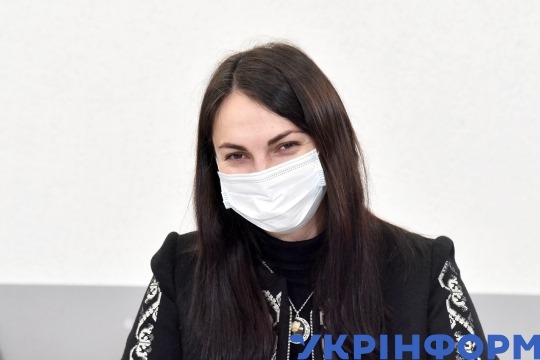
Chair of the Board of National Interests Advocacy Network Hanna Hopko
HANNA HOPKO touched upon necessity of a comprehensive unity and collective actions in order to withstand Russia. She particularly stressed the need to elaborate and adopt a Marshall Plan for Ukraine as an important tool to strengthen economic security of the country and the region as a whole.
GENERAL WESLEY CLARK expressed his confidence in rapid restoration of a strong Trans-Atlantic cooperation within the NATO framework under the Biden Administration: “Biden will reinforce cooperation within NATO very fast”. He also assessed the Russian approaches in geopolitics: “Russian tactic is to create weak and fragile states alongside its borders, to provoke internal chaos there in order to pressure them with its finance, power and influence”.
IRYNA VERESHCHUK underlined an importance of developing and strengthening of Ukraine’s cooperation with foreign partners in order to build a sustainable security model in the region: “It is worth mentioning that for Ukraine it is essential to have strong relations not only with the USA, but also with the EU. For us the US-EU relations also matter a lot. Only balanced triangle of Ukraine-US, Ukraine-EU and US-EU security cooperation is capable to deliver proper level of a viable security, strong stance against Russia and a perspective to restore territorial integrity of Ukraine”.
MARKO MIHKELSON also emphasized the urgency of strengthening the democratic institutions in order to withstand Russia and to deliver security in Europe as a whole: “It is regretting that in many developed democracies we nowadays experience some problems with democracy as such. We could not win in this contest with autocratic regime of Russia if our democracies are weak… The issue of Ukraine’s security is an issue of the European security. This is about the European unity, which is weak for the time being”.
LtCol (Ret) GLEN GRANT put forward the issue of more effective allocation of the US financial assistance for security needs in Eastern Europe: “NATO structures in the region are weak. They are the most fragile on southeast flank. US should reconsider allocation of its financial support to strengthen security structures in the countries of Eastern Europe. The volumes of assistance are bigger than the outcome in actual infrastructural capacity. US should pay more attention to accountability of the recipients of their assistance”.
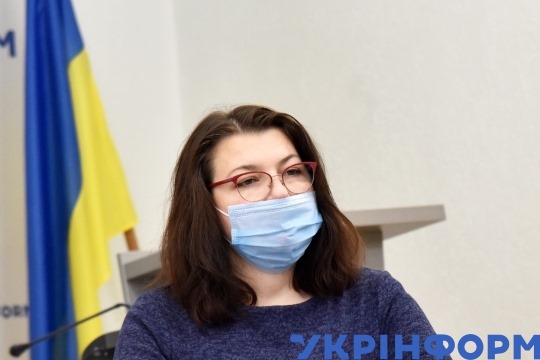
Head of EESI Office Administration Maryna Redko
Dr. ALAN MENDOZA underlined the importance that the UK attaches to the region of Eastern Europe and Ukraine in particular, which is expected to be duly reflected in the Global Britain strategy: “For the UK this region [of Eastern Europe] is of strategic importance, especially given the Brexit; Britain has been consistent with its support to Ukraine since the very first year of the Russian aggression in 2014, and shall continue to support it in the future”.
TIMOTHY LESS devoted his attention to internal problems in the EU and arising tensions within NATO: “Security infrastructure in Europe is outdated; it has been designed after the WWII and could not duly address the challenges of today; moreover, there are some tensions between certain NATO members. The EU will survive as a bloc, but its political weight will fade within a decade”.
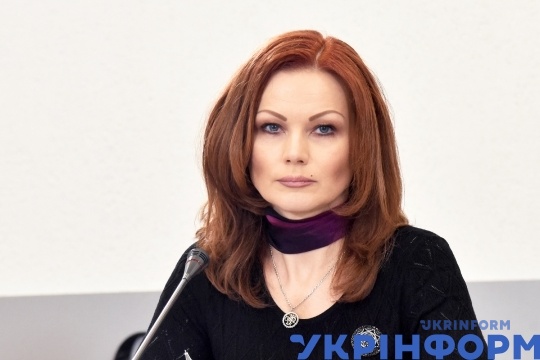
EESI Executive Director Iuliia Osmolovska
While closing the International Round Table, the EESI Executive Director IULIIA OSMOLOVSKA summarized the discussion by saying that the respective EESI report was to be prepared and delivered to the attention of decision-making authorities in security sector of Ukraine and its partners for their further reference.
The Institute plans to conduct a number of activities and research on various aspects of security in the Eastern European region, as well as to prepare proposals and recommendations for government agencies on strengthening the security in the region and Ukraine, in particular. To this date, the EESI has been preparing its comments and suggestions to the governmental draft of the Economic Security Strategy. The EESI is also in the midst of the formation of its International Strategic Advisory Board and prepares for the visit of its representatives alongside with partner organizations to the United States.


